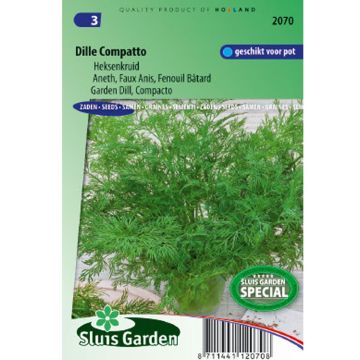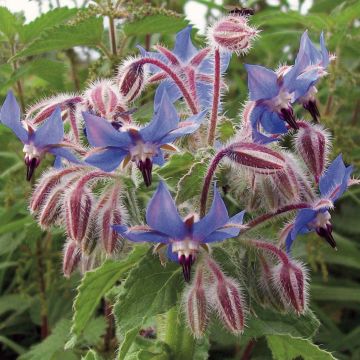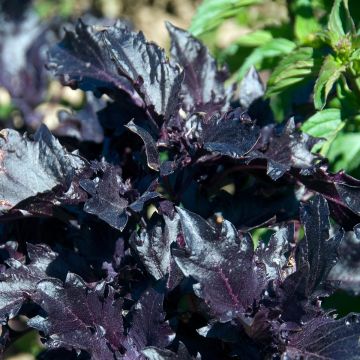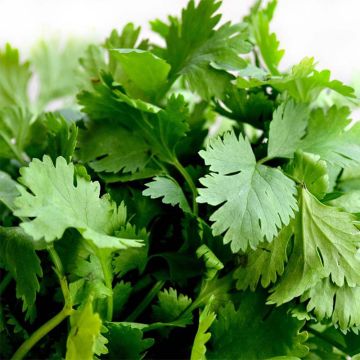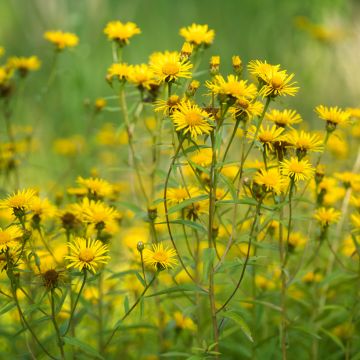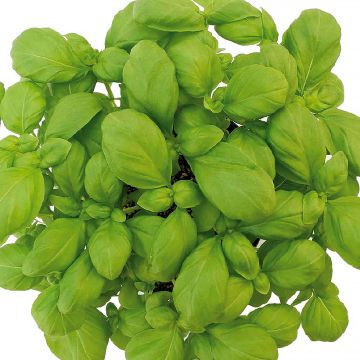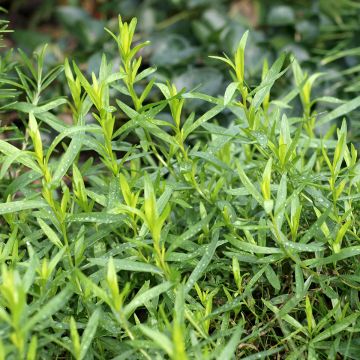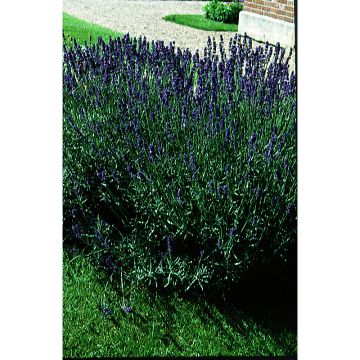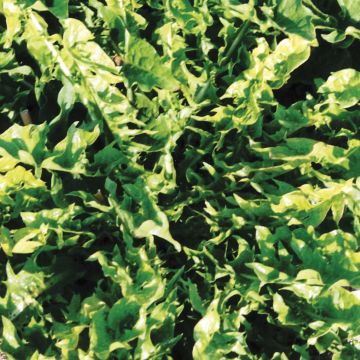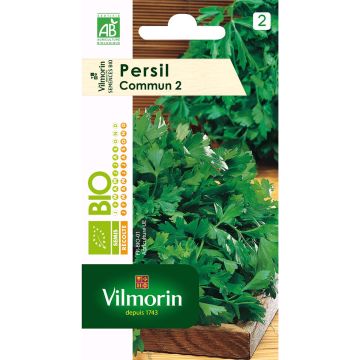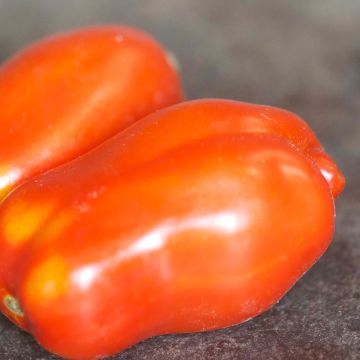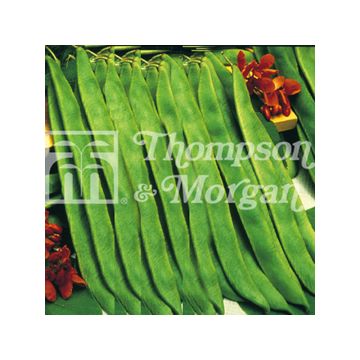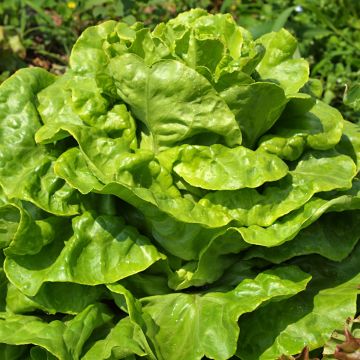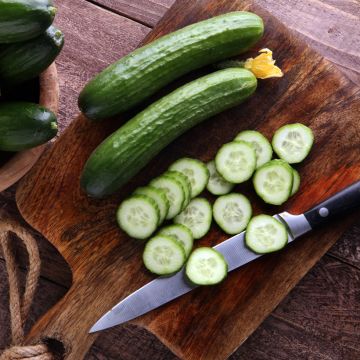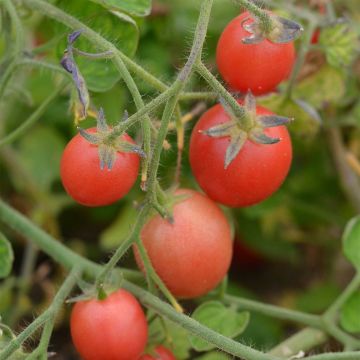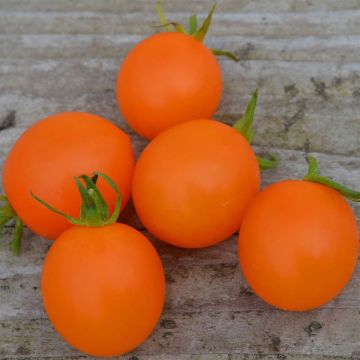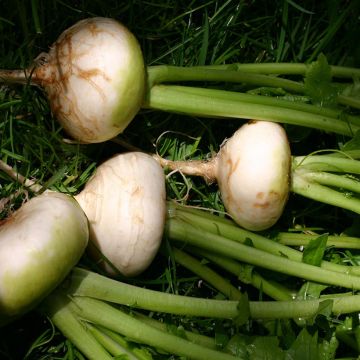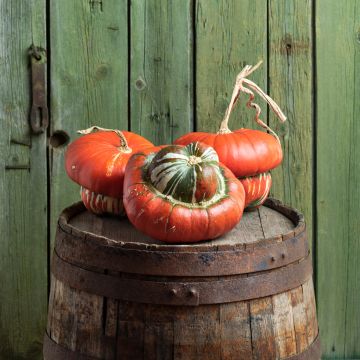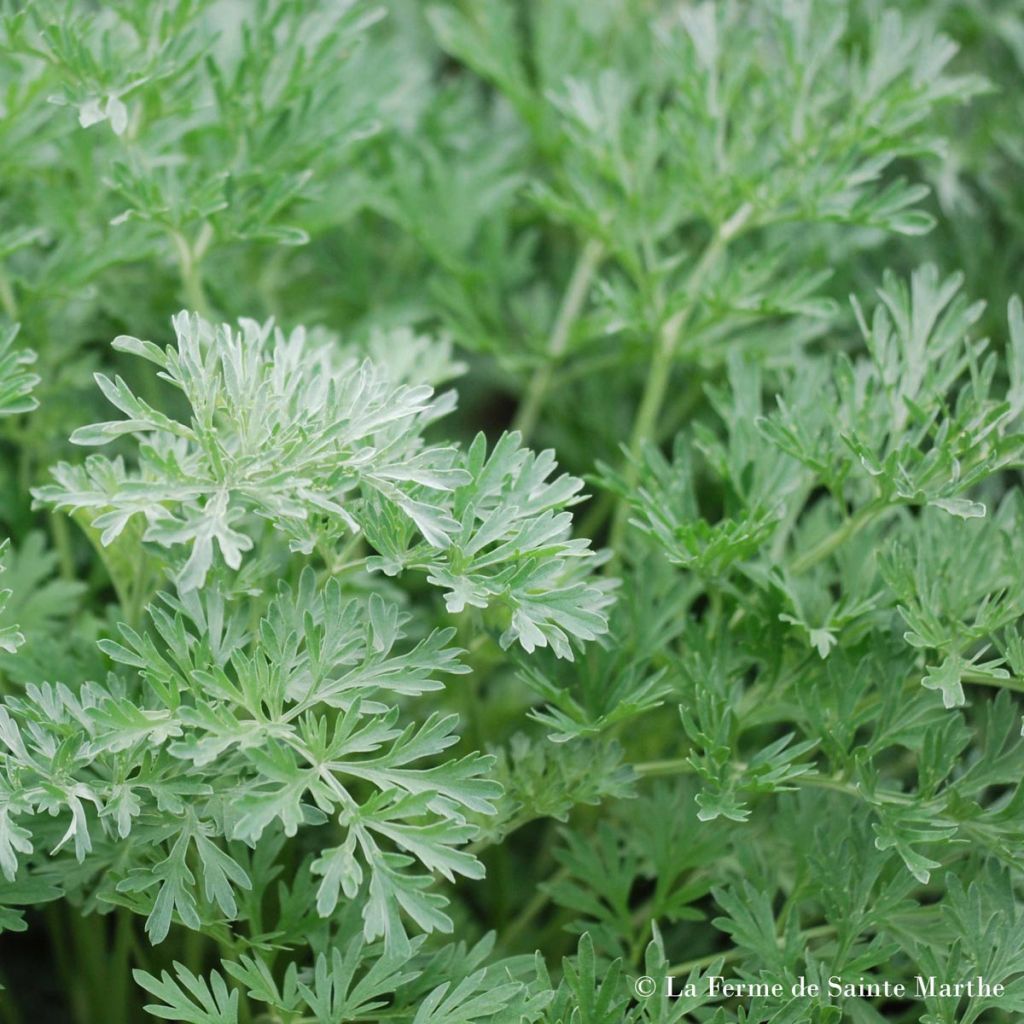

Common Wormwood - Ferme de Sainte Marthe seeds


Common Wormwood - Ferme de Sainte Marthe seeds
Common Wormwood - Ferme de Sainte Marthe seeds
Artemisia absinthium
Grand Wormwood, Absinthe Wormwood, Absinthium
Alright
Patricia F., 01/01/2019
Special offer!
Receive a €20 voucher for any order over €90 (excluding delivery costs, credit notes, and plastic-free options)!
1- Add your favorite plants to your cart.
2- Once you have reached €90, confirm your order (you can even choose the delivery date!).
3- As soon as your order is shipped, you will receive an email containing your voucher code, valid for 3 months (90 days).
Your voucher is unique and can only be used once, for any order with a minimum value of €20, excluding delivery costs.
Can be combined with other current offers, non-divisible and non-refundable.
Home or relay delivery (depending on size and destination)
Schedule delivery date,
and select date in basket
This plant carries a 6 months recovery warranty
More information
We guarantee the quality of our plants for a full growing cycle, and will replace at our expense any plant that fails to recover under normal climatic and planting conditions.

Description
Common wormwood (Artemisia Absinthium), also known as Absinthe, is a perennial herb with greyish green, finely dissected, evergreen leaves and pretty yellow flowers in summer. A great natural insect repellent, particularly effective against aphids. Sow from March to May for a harvest the following year.
Wormwood is a member of the Asteraceae family. It is native to continental Europe, Asia and North Africa. It forms a bushy clump, about 90 cm high by 60 cm wide. This fragrant perennial has attractive greyish green foliage and panicles of small yellow flowers in summer. It is rather short-lived but will tolerate frosts down to -15°C. In order to maintain the plant’s compact growth habit, pinch out the stems in late spring.
Wormwood is the main ingredient of Absinthe, a popular spirit during the 19th century. The drink was banned in 1915, suspected to cause mental illness in famous figures such as Vincent Van Gogh.
Although the production of Absinthe has since been legalised, wormwood is mainly grown for its ornamental and insect-repellent virtues. It’s a precious ally in the vegetable garden, providing it isn't planted too close to your crops as it inhibits the growth of neighbouring plants.
Wormwood is used to make a brandy type liqueur called Absinthe. It is also used to relieve indigestion and to expel internal parasites. However, wormwood is an abortifacient (induces abortion) and should be used with great caution.
Where to plant? Artemisia Absinthium likes the heat. A sunny spot in nitrogen-rich, fairly dry, well drained, chalky soil is perfect.
Harvesting: the leaves are collected just before flowering, in July-August, preferably in the evening.
Preservation: save the leaves by drying them and storing them in a dark, dry place.
Good to know: Wormwood is a well-known insect repellent and can be used effectively against flea beetles and cabbage moths. However, it has an allelopathic effect which means it inhibits the growth of neighbouring plants. A few leaves placed at the foot of the crops you wish to protect should do the trick.
NB. Organic seeds (in French "AB" for "Agriculture Biologique") are produced from plants that aren't treated with phytosanitary products (insecticides, weed killers). The seeds do not undergo post-harvest treatment. They carry the AB label and are approved by Ecocert, an independent structure.
Report an error about the product description
Harvest
Plant habit
Foliage
Botanical data
Artemisia
absinthium
Asteraceae
Grand Wormwood, Absinthe Wormwood, Absinthium
Cultivar or hybrid
Perennial
Other Herb seeds
View all →Planting and care
Sowing:
Sow the seeds in Spring (March to April) in trays or in seedbeds. The soil mix must be very light (add vermiculite if necessary). Sow sparingly (1 mm deep) and gently cover with the sowing mix. Keep the soil moist but not soggy. Germination generally takes 8 to 10 days. When the seedlings have 4 true leaves, transplant them into pots in rich, light compost. The young plants will slowly mature and will be ready to be planted in the garden the following autumn or spring after having been overwintered in a cold frame or greenhouse.
Artemisia Absinthium likes the heat. A sunny spot in nitrogen-rich, fairly dry, well drained, chalky soil is perfect.
Care:
Wormwood is fairly hardy, withstanding temperatures of at least -15°C. However, it has a relatively short life span and is usually replaced after 3 years. Plants must be pruned back in early to late Spring to maintain a compact growth habit. Strangely enough, Wormwood is prone to aphid attacks. If this happens, cut off the affected areas and spray with black soap.
Seedlings
Care
Intended location
-
, onOrder confirmed
Reply from on Promesse de fleurs
Similar products
Haven't found what you were looking for?
Hardiness is the lowest winter temperature a plant can endure without suffering serious damage or even dying. However, hardiness is affected by location (a sheltered area, such as a patio), protection (winter cover) and soil type (hardiness is improved by well-drained soil).

Photo Sharing Terms & Conditions
In order to encourage gardeners to interact and share their experiences, Promesse de fleurs offers various media enabling content to be uploaded onto its Site - in particular via the ‘Photo sharing’ module.
The User agrees to refrain from:
- Posting any content that is illegal, prejudicial, insulting, racist, inciteful to hatred, revisionist, contrary to public decency, that infringes on privacy or on the privacy rights of third parties, in particular the publicity rights of persons and goods, intellectual property rights, or the right to privacy.
- Submitting content on behalf of a third party;
- Impersonate the identity of a third party and/or publish any personal information about a third party;
In general, the User undertakes to refrain from any unethical behaviour.
All Content (in particular text, comments, files, images, photos, videos, creative works, etc.), which may be subject to property or intellectual property rights, image or other private rights, shall remain the property of the User, subject to the limited rights granted by the terms of the licence granted by Promesse de fleurs as stated below. Users are at liberty to publish or not to publish such Content on the Site, notably via the ‘Photo Sharing’ facility, and accept that this Content shall be made public and freely accessible, notably on the Internet.
Users further acknowledge, undertake to have ,and guarantee that they hold all necessary rights and permissions to publish such material on the Site, in particular with regard to the legislation in force pertaining to any privacy, property, intellectual property, image, or contractual rights, or rights of any other nature. By publishing such Content on the Site, Users acknowledge accepting full liability as publishers of the Content within the meaning of the law, and grant Promesse de fleurs, free of charge, an inclusive, worldwide licence for the said Content for the entire duration of its publication, including all reproduction, representation, up/downloading, displaying, performing, transmission, and storage rights.
Users also grant permission for their name to be linked to the Content and accept that this link may not always be made available.
By engaging in posting material, Users consent to their Content becoming automatically accessible on the Internet, in particular on other sites and/or blogs and/or web pages of the Promesse de fleurs site, including in particular social pages and the Promesse de fleurs catalogue.
Users may secure the removal of entrusted content free of charge by issuing a simple request via our contact form.
The flowering period indicated on our website applies to countries and regions located in USDA zone 8 (France, the United Kingdom, Ireland, the Netherlands, etc.)
It will vary according to where you live:
- In zones 9 to 10 (Italy, Spain, Greece, etc.), flowering will occur about 2 to 4 weeks earlier.
- In zones 6 to 7 (Germany, Poland, Slovenia, and lower mountainous regions), flowering will be delayed by 2 to 3 weeks.
- In zone 5 (Central Europe, Scandinavia), blooming will be delayed by 3 to 5 weeks.
In temperate climates, pruning of spring-flowering shrubs (forsythia, spireas, etc.) should be done just after flowering.
Pruning of summer-flowering shrubs (Indian Lilac, Perovskia, etc.) can be done in winter or spring.
In cold regions as well as with frost-sensitive plants, avoid pruning too early when severe frosts may still occur.
The planting period indicated on our website applies to countries and regions located in USDA zone 8 (France, United Kingdom, Ireland, Netherlands).
It will vary according to where you live:
- In Mediterranean zones (Marseille, Madrid, Milan, etc.), autumn and winter are the best planting periods.
- In continental zones (Strasbourg, Munich, Vienna, etc.), delay planting by 2 to 3 weeks in spring and bring it forward by 2 to 4 weeks in autumn.
- In mountainous regions (the Alps, Pyrenees, Carpathians, etc.), it is best to plant in late spring (May-June) or late summer (August-September).
The harvesting period indicated on our website applies to countries and regions in USDA zone 8 (France, England, Ireland, the Netherlands).
In colder areas (Scandinavia, Poland, Austria...) fruit and vegetable harvests are likely to be delayed by 3-4 weeks.
In warmer areas (Italy, Spain, Greece, etc.), harvesting will probably take place earlier, depending on weather conditions.
The sowing periods indicated on our website apply to countries and regions within USDA Zone 8 (France, UK, Ireland, Netherlands).
In colder areas (Scandinavia, Poland, Austria...), delay any outdoor sowing by 3-4 weeks, or sow under glass.
In warmer climes (Italy, Spain, Greece, etc.), bring outdoor sowing forward by a few weeks.






























